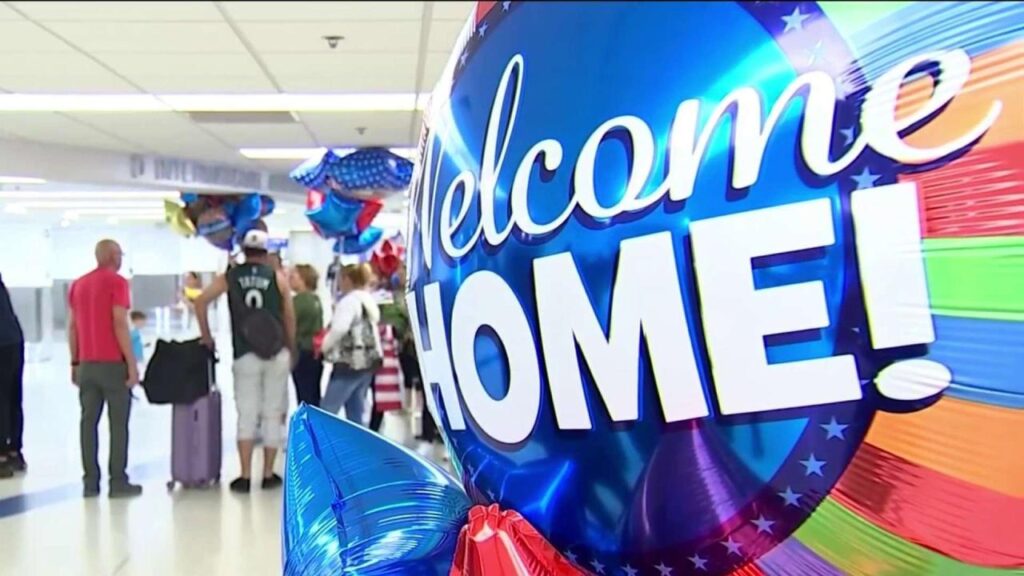DONALD TRUMP CANCELA EL PAROLE HUMANITARIO A MILES DE CUBANOS EMIGRADOS. PHOTOS.
Donald Trump revoca el parole humanitario que benefició a cientos de miles de cubanos. Los migrantes acogidos a esa medida quedarán sin estatus legal a partir del 24 de abril.

WASHINGTON- El Gobierno de Donald Trump revocó el parole humanitario que benefició a 530.000 cubanos, haitianos, nicaragüenses y venezolanos que entraron legalmente a Estados Unidos bajo esa medida de la Administración de Joe Biden.
Según un aviso publicado en el Registro Federal el viernes 21 de marzo y citado por la agencia de noticias Reuters, los migrantes acogidos a esa medida quedarán sin estatus legal a partir del 24 de abril. Esto no afectará a quienes hayan aplicado u obtenido otro beneficio migratorio y de regularización, como la Ley de Ajuste Cubano.
De acuerdo con el presidente estadounidense, los programas de libertad condicional de entrada legal puestos en marcha bajo su predecesor demócrata sobrepasaron los límites de la ley federal, por lo que pidió su terminación en una orden ejecutiva del 20 de enero.
Biden lanzó un programa de entrada en libertad condicional para venezolanos en 2022 y lo amplió a cubanos, haitianos y nicaragüenses en 2023, mientras su Administración lidiaba con altos niveles de inmigración ilegal de esas nacionalidades.
La decisión de la Administración Trump de quitar el estatus legal a medio millón de migrantes podría hacer que muchos sean vulnerables a la deportación si deciden permanecer en EEUU. Sigue sin estar claro cuántos de los que entraron a EEUU en libertad condicional tienen ahora otra forma de protección o estatus legal.
¿QUÉ ES EL PAROLE HUMANITARIO?
El parole humanitario es un permiso especial otorgado por el gobierno de Estados Unidos a personas que no cumplen con los requisitos para una visa, pero que necesitan ingresar al país por razones urgentes de humanidad o beneficio público significativo.
Características del parole humanitario:
Temporal: Generalmente se concede por un tiempo limitado (usualmente hasta un año).
No equivale a residencia ni estatus migratorio permanente.
Permite trabajar: En algunos casos, los beneficiarios pueden solicitar un permiso de trabajo (Formulario I-765).
No es automático: Cada solicitud es evaluada individualmente por el Servicio de Ciudadanía e Inmigración de EE.UU. (USCIS).
Quiénes pueden solicitarlo:
Personas en peligro en su país de origen (por persecución, violencia, conflictos, etc.).
Casos de reunificación familiar urgente.
Personas con necesidades médicas urgentes que no pueden ser tratadas en su país.
Estados Unidos ha utilizado este permiso en programas específicos, como el parole humanitario para cubanos, haitianos, nicaragüenses y venezolanos, que les permitió ingresar legalmente con un patrocinador.

DONALD TRUMP CANCELS “HUMANITARIAN PAROLE” FOR THOUSANDS OF CUBAN EMIGRANTS. PHOTOS.
Donald Trump revokes the humanitarian parole that benefited hundreds of thousands of Cubans. Migrants benefiting from this measure will be without legal status starting April 24.

Cubans benefiting from humanitarian parole arrive in the US. América TeVé.
WASHINGTON – The Donald Trump administration revoked the humanitarian parole that benefited 530,000 Cubans, Haitians, Nicaraguans, and Venezuelans who legally entered the United States under this measure by the Biden administration.
According to a notice published in the Federal Register on Friday, March 21, and cited by the Reuters news agency, migrants benefiting from this measure will be without legal status starting April 24. This will not affect those who have applied for or obtained other immigration and regularization benefits, such as the Cuban Adjustment Act.
According to the US president, the legal entry parole programs implemented under his Democratic predecessor exceeded the limits of federal law, leading him to call for their termination in a January 20 executive order.
Biden launched a parole program for Venezuelans in 2022 and expanded it to Cubans, Haitians, and Nicaraguans in 2023, as his administration grappled with high levels of illegal immigration from those nationalities.
The Trump administration’s decision to strip legal status from half a million migrants could make many vulnerable to deportation if they choose to remain in the US. It remains unclear how many of those who entered the US on parole now have another form of protection or legal status.
WHAT IS HUMANITARIAN PAROLE?
Humanitarian parole is a special permit granted by the United States government to individuals who do not meet visa requirements but need to enter the country for urgent humanitarian reasons or significant public benefit.
Characteristics of humanitarian parole:
Temporary: It is generally granted for a limited time (usually up to one year).
It is not equivalent to permanent residency or immigration status.
Permits work: In some cases, beneficiaries can apply for a work permit (Form I-765).
It is not automatic: Each application is evaluated individually by the U.S. Citizenship and Immigration Services (USCIS).
Who can apply:
Individuals in danger in their country of origin (due to persecution, violence, conflict, etc.).
Urgent family reunification cases.
Individuals with urgent medical needs that cannot be treated in their country.
The United States has used this permit in specific programs, such as humanitarian parole for Cubans, Haitians, Nicaraguans, and Venezuelans, which allowed them to enter legally with a sponsor.

Agencies/ DDC/ Extractos/ Excerpts/ Internet Photos/ Arnoldo Varona.
www.TheCubanHistory.com
THE CUBAN HISTORY, HOLLYWOOD.



